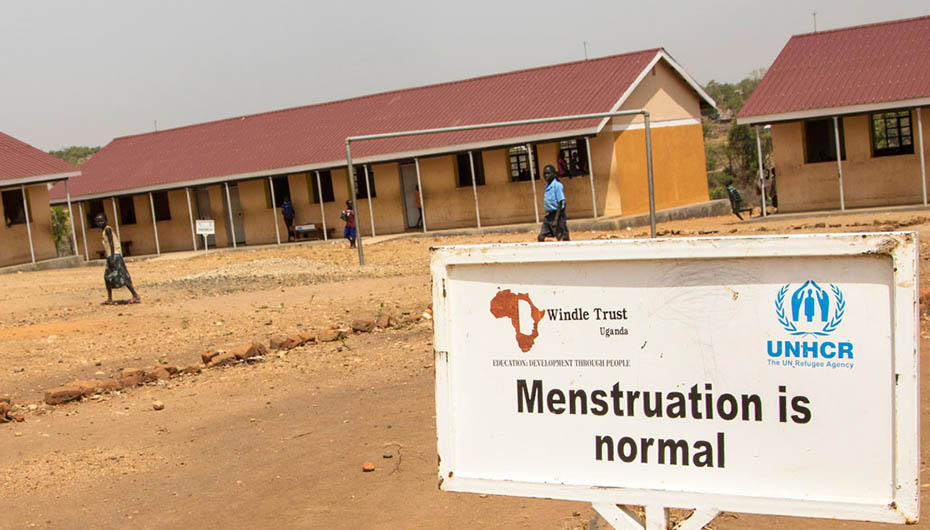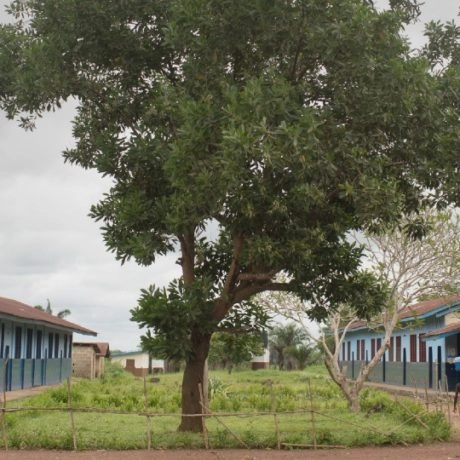News and Stories - Gender equality - 30 May 2016
The Impact of Period Stigma and Myths about Menstruation

Periods are a universal fact of life wherever you live, which is why it’s time to smash the myths about menstruation and end all forms of period stigma.
Roughly 800 million girls and women between the ages of 15 and 49 are menstruating right now. And despite the fact these 800 million people menstruate every month, many still feel embarrassed and uncomfortable when it comes to just talking about it.
We believe no one should be held back because of their period.
Yet, for many girls and young women around the world, the stigma and shame attached to menstruation can place their physical, sexual, and mental health at risk.
Many have little access to sanitary products and adequate toilet facilities at school, which makes managing their period incredibly difficult. For some communities around the world with little access to clean water, reusable pads or underwear aren’t appropriate. Because of the damaging taboos and stigma attached to periods, many girls and women feel embarrassed to hang their reusable pads to dry where others could see them.
There are also a lot of myths around menstruation, which mean some products such as menstrual cups or tampons, aren’t culturally accepted or appropriate. That’s why our programs are also working with communities to break down these damaging taboos to normalise periods.
Damaging myths and little access to period products restrict girls’ movements when they have their period, which can then affect their attendance and performance at school. The stigma attached to menstruation can also lead to teasing, shaming and exclusion from daily activities, which all have a negative effect on a girl’s sense of dignity.
In some cases, many adolescent girls struggle to understand what’s happening to their bodies when they have their first period, with some even fearing death. Some young girls may not even know what’s happening when they have their first period and they’re too frightened to tell anyone. And this is why ending period shame, smashing damaging myths and normalising menstruation is so important.
Why? Because menstruation matters. Period.
How period stigma and myths impact girls, women and all people who menstruate around the globe.
- 500 million girls and women globally lack the facilities to properly manage their periods.1
- Many women who are on their periods are not allowed to be in the kitchen or attend ritual practices, according to a 2016 Hindustan Times report on period taboo in India.2
- Research from The Wire in India reported that roughly 28% of girls said they do not go to school during their period because they don’t have sanitary or affordable menstrual products.3
- In Sierra Leone, myths surrounding menstruation include; once a girl gets her period, it means she has been sexually active; and the beginning of menstruation signifies the end of childhood.4
- In rural parts of Bangladesh, there’s a misconception that periods are a form of punishment or curse.5
- In the United Kingdom, more than 137,700 of girls in the UK missed school in 2017 because they couldn’t afford menstrual products. Shame and stigma surrounding that, according to the Independent, resulted in a loss of education for these girls.6
This is why Plan International is working across the globe to help make sure girls, and all people who menstruate, are able to overcome these myths about periods and to improve their menstrual health.
Kadiatou is smashing myths about menstruation
Menstrual hygiene is a taboo in our country, no one wishes to address it publicly for fear of being criticised or even rejected because of the social constraints in our country,- says Kadiatou, one of the members of the Guinea Girl Leaders Club which is supported by Plan International.
For many girls like Kadiatou, a lack of information on menstruation, poor sanitation infrastructure and the fact that menstrual hygiene products are often inaccessible are among the main challenges girls and young women face when managing their periods.
“The price of sanitary pads varies between 10 to 15 thousand Guinean francs and we need them every month for three days to a week for girls who have a long cycle. Girls often can’t afford to pay for them, so they are forced to isolate themselves at home. If they have to go to school during this time, it’s impossible. It’s the same thing for girls who have jobs,” Kadiatou explains.
That’s why Plan International is working with girl activists and leaders in communities to distribute reusable sanitary pads!
As well as breaking taboos about periods, these strong leaders are also using the opportunity to raise awareness about COVID-19 prevention by distributing face masks and soap.
Plan International is also working to tackle period stigma and menstruation myths through our water, sanitation and hygiene (WASH) programs, and providing girls and women with sexual reproductive health and rights information.





